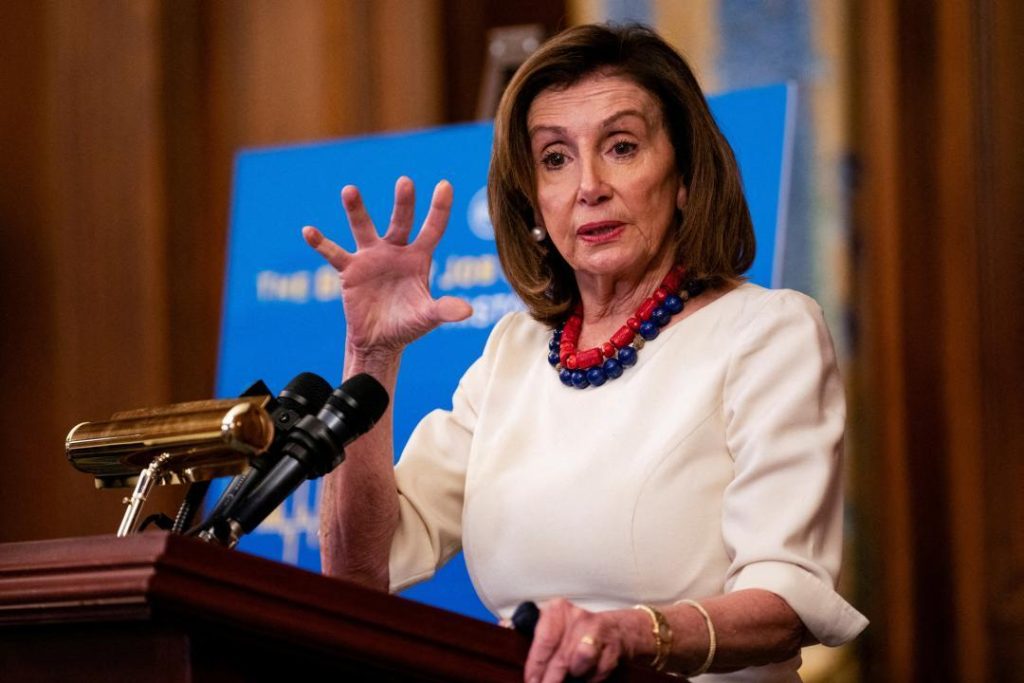
What is the PELOSI Act and Why is it Named After Former US Speaker Nancy Pelosi?
In recent years, there has been growing concern about the potential for conflicts of interest among lawmakers in the United States. One of the most high-profile examples of this is the alleged insider trading scandal involving former US Speaker of the House Nancy Pelosi and her husband, Paul Pelosi. In response to these concerns, US Senator Josh Hawley has reintroduced the Preventing Elected Leaders from Owning Securities and Investments (PELOSI) Act, which aims to prohibit lawmakers and their spouses from holding or dealing in stocks while holding office.
But what is the PELOSI Act, and why is it named after Nancy Pelosi? In this blog post, we’ll take a closer look at the proposed legislation and its intended consequences.
The PELOSI Act: A Brief Overview
The PELOSI Act is a bill that seeks to address the issue of lawmakers holding stocks and other investment interests while in office. The bill would prohibit members of Congress, as well as their spouses, from owning or dealing in stocks, bonds, and other securities while serving in office. However, lawmakers would still be allowed to invest in mutual funds, exchange-traded funds (ETFs), and Treasury bonds.
The idea behind the bill is to prevent lawmakers from using their position of power to make investment decisions that could benefit their own financial interests. This is particularly concerning in cases where lawmakers have access to non-public information that could impact the value of a particular stock or investment.
The PELOSI Act is named after Nancy Pelosi, who has been accused of making significant profits from her husband’s stock trades while serving as Speaker of the House. According to reports, Paul Pelosi made several lucrative trades in 2020, including a $5 million investment in a company that received a major contract from the US Department of Defense. At the time, Nancy Pelosi was leading the House of Representatives and had the power to shape the legislative agenda.
While it’s worth noting that Pelosi has denied any wrongdoing and has claimed that her husband’s trades were made independently of her position as Speaker, the appearance of impropriety is undeniable. The PELOSI Act is intended to prevent similar situations in the future, by creating a firewall between lawmakers’ personal financial interests and their official duties.
The Need for the PELOSI Act
The PELOSI Act is a response to growing concerns about the potential for conflicts of interest among lawmakers. In recent years, there have been several high-profile cases of lawmakers accused of using their position to make investment decisions that benefited their own financial interests.
One of the most notable examples is the case of US Representative Chris Collins, who was accused of insider trading in 2019. Collins was charged with making a series of trades in the stock of a biotechnology company, Innate Immunotherapeutics, based on non-public information. Collins was ultimately convicted and sentenced to 26 months in prison.
The PELOSI Act is intended to prevent similar situations in the future, by requiring lawmakers to divest themselves of any financial interests that could conflict with their official duties. By doing so, the bill aims to restore public trust in the legislative process and prevent the appearance of impropriety.
What’s Next for the PELOSI Act?
The PELOSI Act has been reintroduced by Senator Josh Hawley, and is currently awaiting consideration by the Senate. While it’s unclear whether the bill will ultimately become law, it’s clear that the issue of conflicts of interest among lawmakers is a pressing concern for many Americans.
In the coming weeks and months, it will be important to monitor the progress of the PELOSI Act and to continue to hold lawmakers accountable for their actions. By doing so, we can help ensure that the legislative process remains transparent and accountable, and that the interests of the American people are always put first.
Conclusion
The PELOSI Act is a timely and necessary response to growing concerns about conflicts of interest among lawmakers. By prohibiting lawmakers and their spouses from holding or dealing in stocks while in office, the bill aims to restore public trust in the legislative process and prevent the appearance of impropriety.
As we move forward, it will be important to continue to monitor the progress of the PELOSI Act and to hold lawmakers accountable for their actions. By doing so, we can help ensure that the interests of the American people are always put first, and that our democratic system remains strong and transparent.






